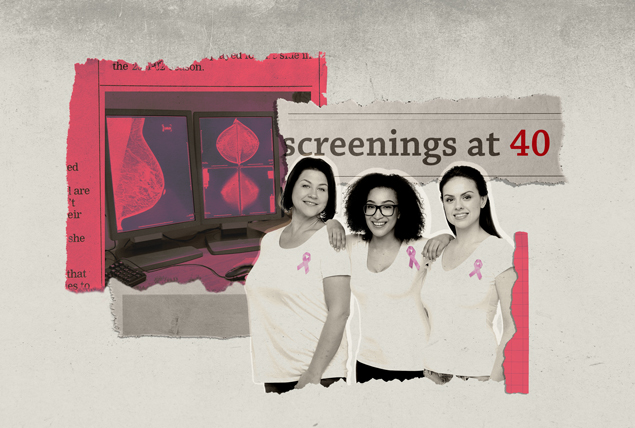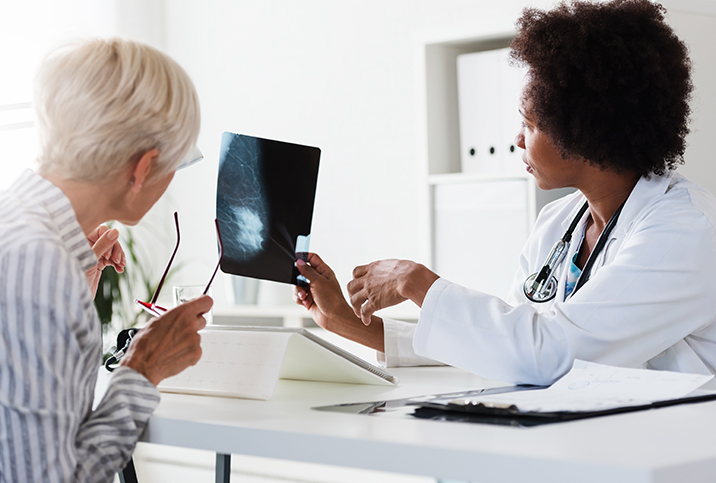Updated Guidelines Say Breast Cancer Screening Should Start at 40

All women should be screened for breast cancer every other year starting at age 40, according to a new draft recommendation released on May 9 by the United States Preventive Services Task Force (USPSTF).
If adopted, the proposal would lower the recommended age to begin receiving biennial mammograms, or X-rays of the breast, by 10 years. The previous task force recommendation, last updated in 2016, called for women to begin mammograms at age 50 and for women in their 40s to talk to their doctor about when to start screening based on their personal risk.
The Centers for Disease Control and Prevention estimates that 42,000 women and 500 men die from breast cancer every year. USPSTF said new evidence suggested that lowering the screening at age 40 could save 19 percent more lives, representing about 8,000 fewer annual deaths.
"New and more inclusive science about breast cancer in people younger than 50 has enabled us to expand our prior recommendation and encourage all women to get screened every other year starting at age 40," said Carol Mangione, M.D., immediate past chair of the task force, in a press release. "This new recommendation will help save lives and prevent more women from dying due to breast cancer."
Other medical groups have already recommended beginning annual or biennial breast cancer screening younger than age 50. The American Cancer Society recommends a yearly mammogram for women between ages 45 and 54.
The draft recommendation is open for comment until June 5, 2023, after which USPSTF will decide whether to adopt the recommendation.
Addressing racial disparities in breast cancer deaths
The draft recommendation comes on the heels of a new study that suggests Black women are significantly more likely to die from breast cancer. The update highlights the importance of earlier screening for addressing racial disparities.
"Ensuring Black women start screening at age 40 is an important first step, yet it is not enough to improve the health inequities we face related to breast cancer," according to task force vice chair Wanda Nicholson, M.D. "In our draft recommendation, we underscore the importance of equitable follow-up after screening and timely and effective treatment of breast cancer and are urgently calling for more research on how to improve the health of Black women."
Who would be affected by the new breast cancer recommendation?
The draft recommendation applies to all people of all ethnicities assigned female at birth, including cisgender women, trans men and nonbinary people. The update is aimed at people at average risk of breast cancer, including those with dense breast tissue or a family history of breast cancer.
The evidence is "insufficient" to assess the risks and benefits of screening tests in people 75 and older, according to the task force.
In addition, the draft recommendation does not apply to the following high-risk individuals:
- People with a personal history of breast cancer
- People who have had a high-risk lesion on prior biopsies
- People who have inherited high-risk breast cancer genes
- People who have a history of high-dose radiation therapy to their chest
Based on these factors, people at higher risk for breast cancer should get a breast MRI and a mammogram every year, typically beginning at age 30, according to guidelines from the American Cancer Society.


















